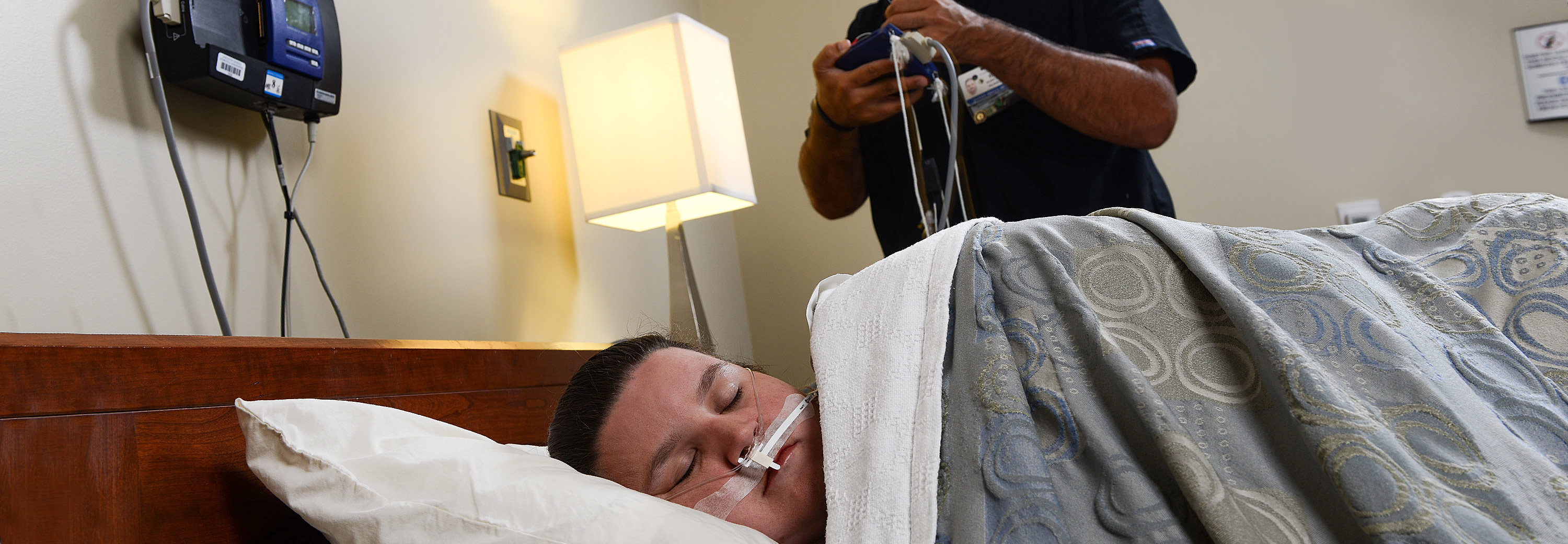Why would you be referred to a lung specialist when you’re having difficulty getting a good night’s sleep? Not many people realize that pulmonologists routinely provide the specialty care for those experiencing temporary or ongoing sleep problems. Whether you experience sleep apnea (loud snoring with repetitive pauses in breathing), excessive daytime sleepiness, or insomnia, our pulmonologists can help.
Sleep promotes healthy brain function and plays a significant role in your physical and mental well-being. Quality sleep enhances your immune system; improves learning; and boosts decision-making, problem-solving and coping skills. People who have limited or poor quality sleep are more likely to experience depression, anxiety, concentration and memory problems, and extreme daytime sleepiness. In short, people who don’t sleep well don’t perform well during the day and may put their safety and the safety of others at risk. Furthermore, inadequate sleep can increase your risk for serious health conditions including stroke, heart and kidney disease, diabetes, high blood pressure, and obesity.
When it comes to getting to the root of your sleep problems, our pulmonologists may recommend a diagnostic sleep study. Our board- certified sleep specialists will interpret the results of your sleep study. Our providers will determine the most appropriate course of treatment which may include use of a medical or oral device, medication management or other behavioral therapies. We’ll work with your primary care physician and other specialists to integrate care into the overall plan for your medical care. Our goal is to restore restful sleep so you may experience a better quality of life.
Pulmonary Associates of Lancaster diagnose, treat, and help to manage many sleep disorders including:
- Central Sleep Apnea
- Cheyne-Stokes Respirations
- Circadian Rhythm Disorders
- Idiopathic Hypersomnia
- Insomnia
- Medication Related Sleep Medicine
- Narcolepsy
- Obesity Hypoventilation Syndrome
- Obstructive Sleep Apnea
- Parasomnias
- Restless Legs Syndrome
- Snoring
- Upper Airway Resistance Syndrome

